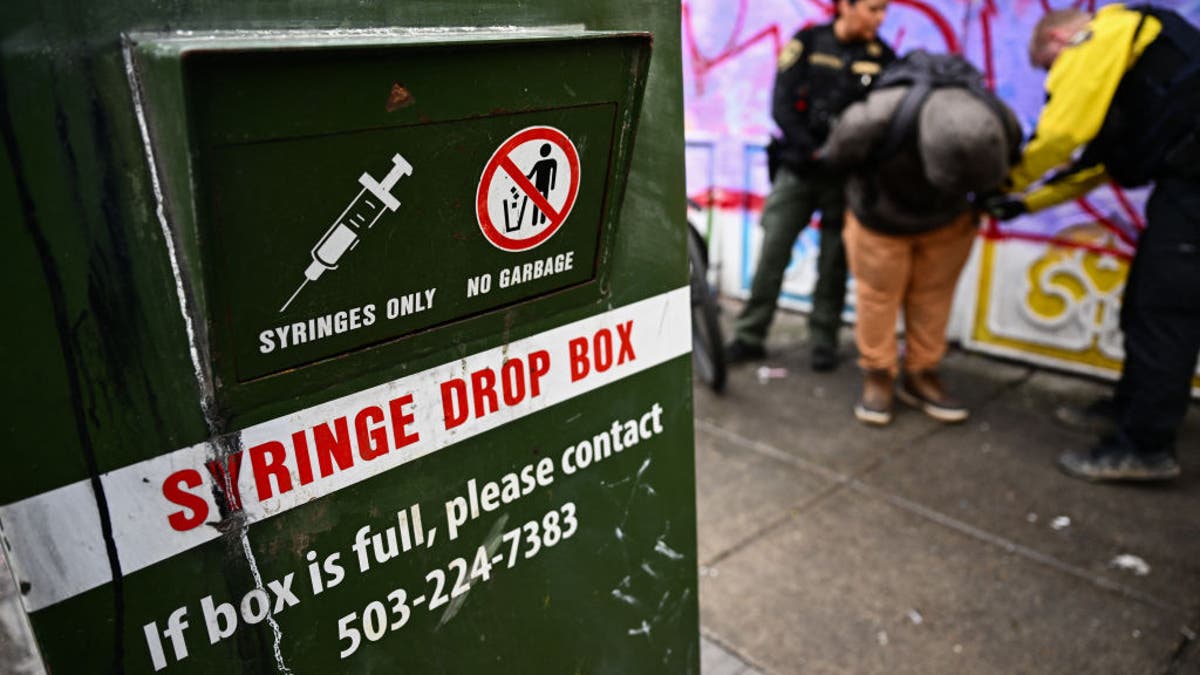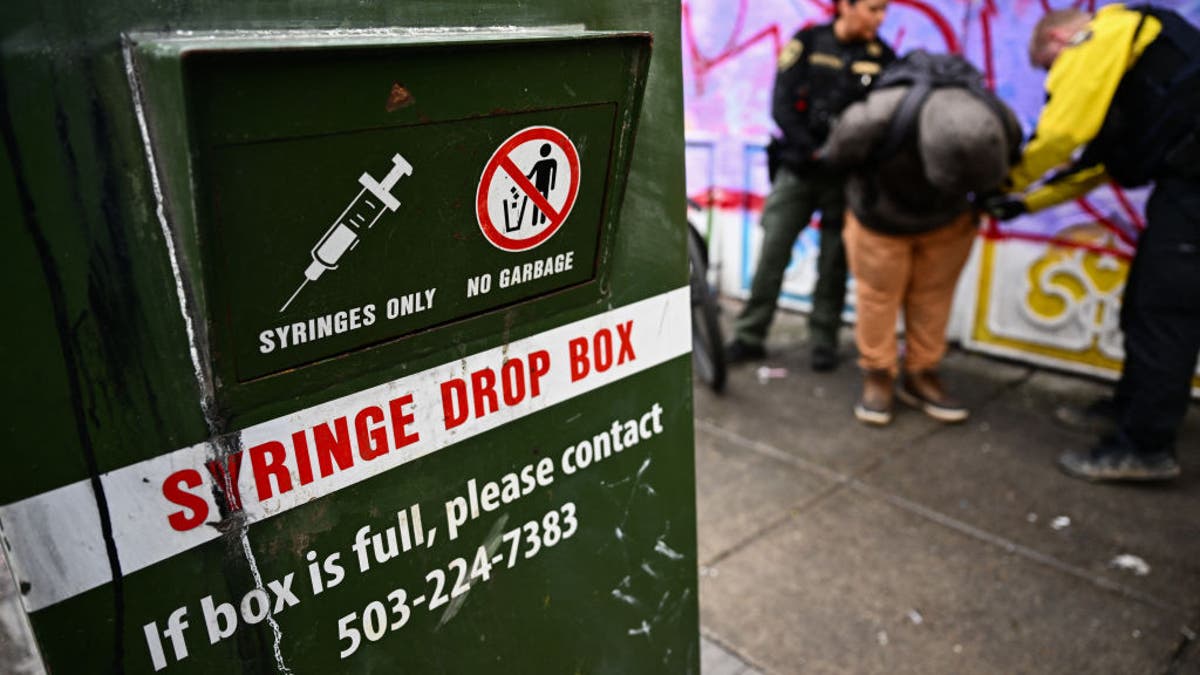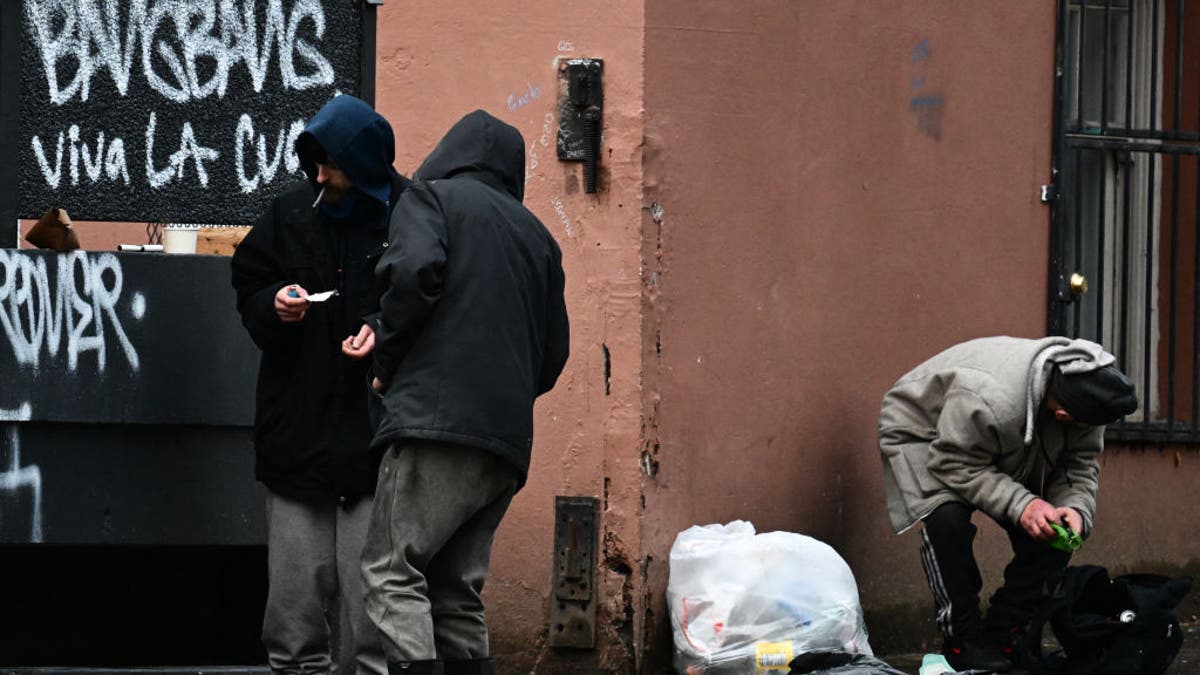
People caught in possession of hard drugs will once again be at risk of state criminal penalties after the state of Oregon opted to recriminalize possession of drugs such as fentanyl, heroin and meth.
Oregon became the first state in the country to decriminalize possession of small amounts of hard drugs in response to a 2020 ballot measure, but it will now recriminalize those offenses under a new law that takes effect Sunday.
The new law, HB4002, will give those caught with small amounts of hard drugs such as fentanyl, heroin, and meth the ability to choose between a charge of possession or treatment programs that would include being mandated to complete a behavior health program to avoid fines.

A syringe drop box stands on the street as a Portland Police officer conducts an investigation into drug dealing and issues a citation for drug possession during a patrol in downtown Portland, Oregon on January 25, 2024. (Photo by Patrick T. Fallon / AFP) (Photo by Patrick T. Fallon/AFP via Getty Images)
A personal-use possession will be a misdemeanor punishable by up to six months in jail, while the law encourages, but does not mandate, counties in the state to set up treatment alternatives to divert offenders away from the criminal justice system.
According to the report, the new law will now make it easier for police to crack down on drug use in public, a problem that has become widespread in some parts of the state over the last few years. The law also introduces stiffer penalties for selling drugs in public places, such as near parks.
Offenders who choose treatment programs will have to meet strict eligibility criteria to avoid charges, Portland police chief Bob Day told the Guardian, mandating that those caught in possession have “no other charges, no warrants, no violent behavior, medically stable.”

A person holds a foil while smoking following the decriminalization of all drugs, including fentanyl and meth, in downtown Portland, Oregon, on January 25, 2024. (Photo by Patrick T. Fallon / AFP) (Photo by Patrick T. Fallon/AFP via Getty Images)
“It’s going to be this very complicated system, where essentially people who use drugs won’t know their rights and what to expect, because it’s different in every single county,” Kellen Russoniello, the director of public health at the Drug Policy Alliance, told the Guardian. “Whether or not you are connected to services or you are just churned through the system will depend very heavily on where you happen to be in the state.”
Others, such as Democratic state representative Jason Kropf, a supporter of the law, expressed optimism about the new direction for the state.
“I have optimism, and I have hope,” Kropf told the Guardian. “I’m also realistic that we have a lot of work ahead of us.”







